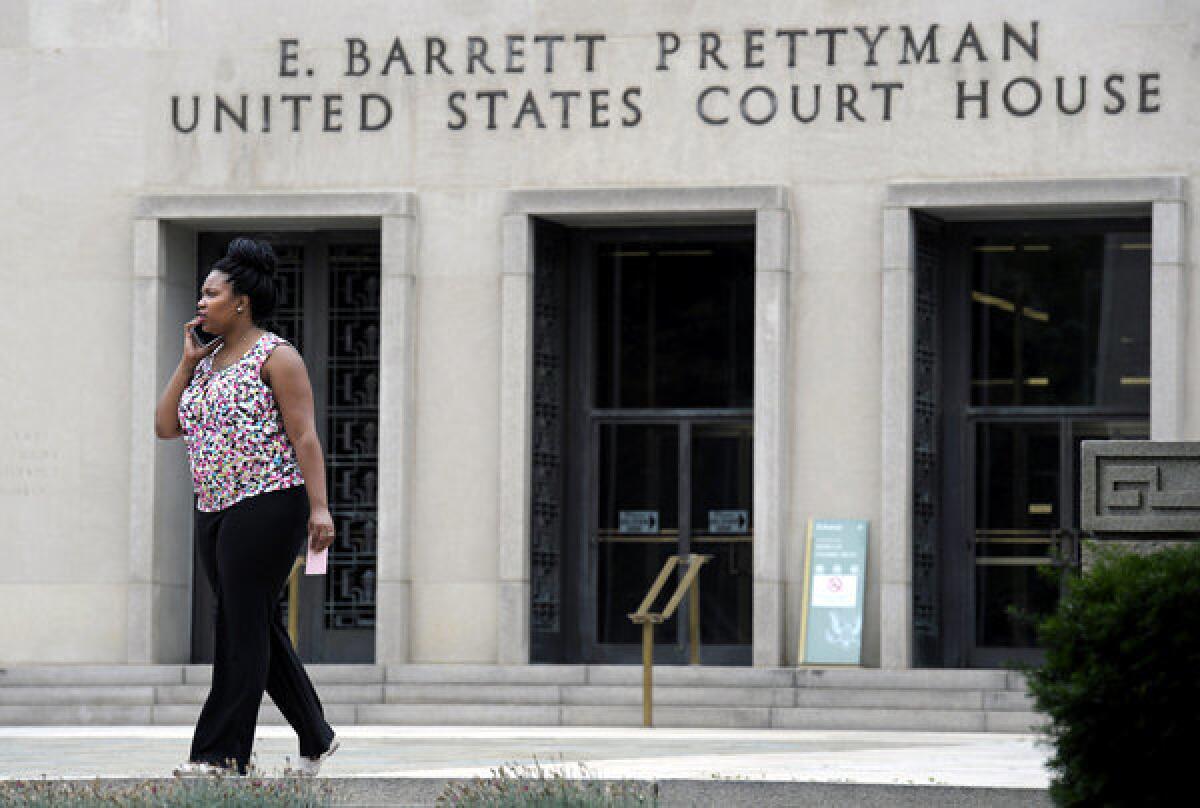Trying to crack open the door to the secret surveillance court

- Share via
“Secret law is inconsistent with democratic governance. In order for the rule of law to prevail, the requirements of the law must be publicly discoverable.”
So began an amendment that Sen. Jeff Merkley (D-Ore.) proposed to last year’s Foreign Intelligence Service Act reauthorization bill. And you wouldn’t think that denouncing “secret law” would be controversial, at least in this country. Yet the Senate resoundingly rejected the amendment, which would have required the secretive Foreign Intelligence Surveillance Court to disclose rulings that shaped the contours of two key surveillance laws.
Now that a former National Security Agency contractor has revealed sweeping government monitoring of telephone networks and the Internet, Merkley is trying again. Joined by five fellow Democrats and two Republicans, he introduced a bill Tuesday that would require those rulings, or at least a summary of them, to be made public.
The measure would make an exception for decisions that the attorney general determined needed to be kept secret for national security reasons. And that exception could certainly swallow the rule. Still, the bill would at least highlight how often the Foreign Intelligence Surveillance Court was tweaking the limits on the government’s power to monitor its citizenry.
The policy question here is, how can the public tell when the government is overreaching in its security efforts if few people know what its agents are doing, and they’re barred from talking about it? Secrecy may be vital to successful investigations, but does that mean we can’t find out what kinds of information the courts are letting the government collect?
Supporters of the current system argue that Congress gave the FBI, the Justice Department and the National Security Agency specific, limited authority to conduct surveillance to protect against terrorism and espionage. But Merkley and his allies counter that the extent of that authority is actually pretty vague, leaving the Foreign Intelligence Surveillance Court to set the precise limits.
His bill focuses on court rulings that interpret two provisions of federal law. One, from the Patriot Act, allows the FBI to obtain secret court orders requiring businesses to produce “any tangible thing (including books, records, papers, documents and other items)” for an investigation to obtain “foreign intelligence information” or protect against “international terrorism or clandestine intelligence activities.” As Merkley aide Matt McNally noted: “What is a tangible thing? What is relevant? What is an investigation?” The meaning of any of those words can be stretched or compressed by the court, giving the government more or less freedom to snoop on Americans.
The other provision is from FISA, and it lets the attorney general and the director of national intelligence obtain secret court orders to eavesdrop on noncitizens outside the United States. Although the provision takes pains to limit the targets of such investigations, one sore point for civil libertarians is that people within the United States can be surveilled and recorded if they communicate with targets outside the country.
The bill would require the attorney general to disclose within six months any previous ruling by the Foreign Intelligence Surveillance Court that made a “significant construction or interpretation” of those two provisions. Going forward, the attorney general would be given 45 days to disclose any new ruling meeting those criteria.
The bill would also leave it up to the attorney general to decide when a ruling should be released only in summary form to protect national security, “including methods or sources related to national security.” The attorney general could also decide a ruling was too sensitive to be released in any form. Given such broad discretion, it’s easy to imagine a Justice Department chief rendering Merkley’s efforts all but moot.
Still, the disclosures in recent days about the federal government’s ongoing surveillance programs may be enough to move the needle in Congress. Rushing to reauthorize FISA in late December, lawmakers rejected all four proposed amendments, with Merkley’s failing by a vote of 37 to 54. They’re under no deadline pressure now.
ALSO:
Goldberg: We can’t trust Obama
Edward Snowden: Hero or criminal?
Sen. Sessions on immigration bill’s broken promises
Follow Jon Healey on Twitter @jcahealey
A cure for the common opinion
Get thought-provoking perspectives with our weekly newsletter.
You may occasionally receive promotional content from the Los Angeles Times.




